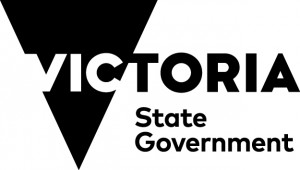How can an insurance broker help you?
You use an accountant to give you tax advice. You use a solicitor to give you legal advice. So it makes sense to use an insurance broker to give you insurance advice.
An insurance broker is skilled in knowing the right questions to ask to find out the risks you have, and then ‘broking the insurance market’ to negotiate with insurers on your behalf to find the best deal for you that gives you exactly the right cover you need at the best price.
Many people are skeptical about paying for an insurance broker. For some, the true value of an insurance broker only becomes apparent at ‘the moment of truth’ when the unexpected happens and you need to make a claim. That’s when our clients have peace of mind knowing that they can get back on track quickly and without worry because they have the right cover in place.
In short, an insurance program developed by an experienced broker helps you by making sure that:
- you’re not paying for anything you don’t need,
- you’re not paying for expensive overlaps across policies, and
- you’re covered for everything you do need.
5 steps to getting it sorted
Before you see an insurance broker, here is our simple 5-step plan to get your insurance planning on the right track.
- What keeps you awake at night?
No two organisations are the same. Insurance can cover many risks and a good starting point is to make a list of everything that could cause an unexpected financial loss in your sporting organisation. In particular, the things that worry you most are probably the things that need to be managed as a top priority.
- Mind the gaps
Leaving risks exposed or under-insured can cost far more than any investment in insurance. Do a stock-take of all your policies to see if you’ve covered all your bases. For example, if you rent your premises, check your lease to make sure you are covered to the right limits specified in your lease.
- Is your house in order?
Next, think about some key housekeeping questions relating to your sporting organisation. When was your property last valued? When did you have your last health and safety check (e.g. security, fire protection and so on)?
- Family first
Ideally, you should consider an insurance program for yourself, your family as well as your sporting organisation. Make a list of any life, trauma, income protection and other personal insurances.
- Go with a pro
Last but not least, compile your preparation and find an insurance broker who you can trust. Broker’s who specialise in sport are unique and finding one with a sport risk management background is rare.
For convenience, you may choose to look for a ‘full service’ broker who can help you with both your sport-specific and personal insurances.
Arthur J. Gallagher are sport-specialist insurance brokers. They help identify what insurance you require as well as minimise the financial impact on your sporting organisation should the unexpected happen.
Arthur J. Gallagher is more than just a name on a logo. They are a family-run business that happens to be the third largest insurance broking firm in the world. They don’t try to sell you insurance. We are sport risk management specialists and we source risk protection options to suit your needs.
Arthur J. Gallagher has been a very proud partner of Vicsport and a strong supporter of Victorian Sport for many years. We offer all Vicsport Members access to our full range of services.
If you would like to know more or discuss this further, please contact Brad Edwards on 03 9412 2431
You may also be interested in...
Sports Talk Governance Forum – tackling the topic on everyone’s radar

20 November, 2015 Vicsport held its 12th Sports Talk Forum at the Rendezvous Hotel on 19 November with a record crowd in attendance
Concussion in sport - what you need to know

There is growing concern in Australia and internationally about the incidence of sport-related concussion and potential health ramifications for athletes
Catching eating disorders early

Eating Disorders Victoria (EDV) has been funded by the Victorian Government to develop a mobile site to facilitate early intervention for eating disorders




















